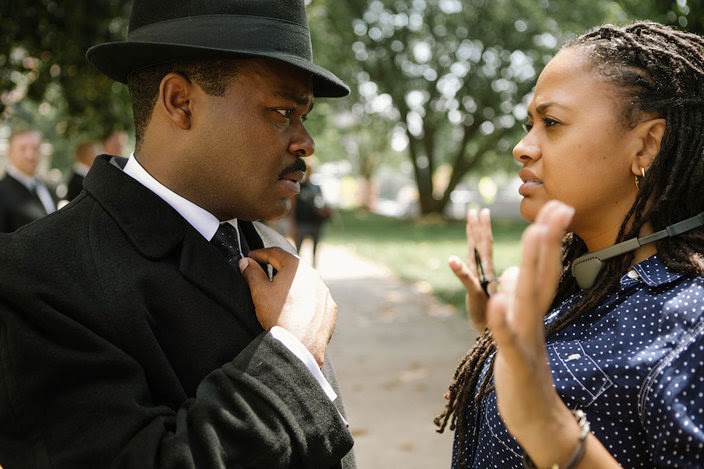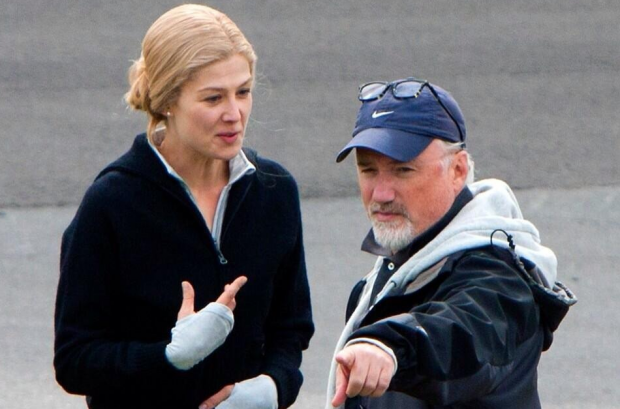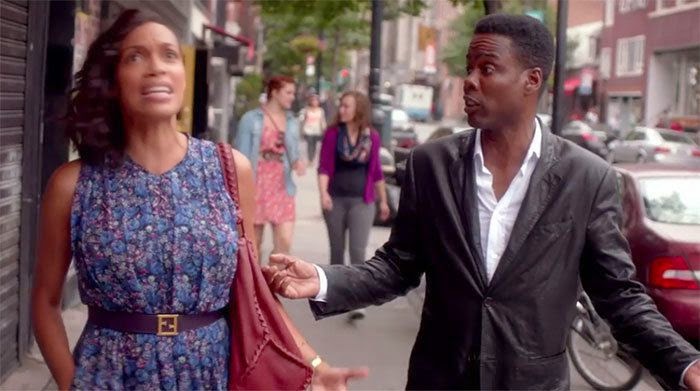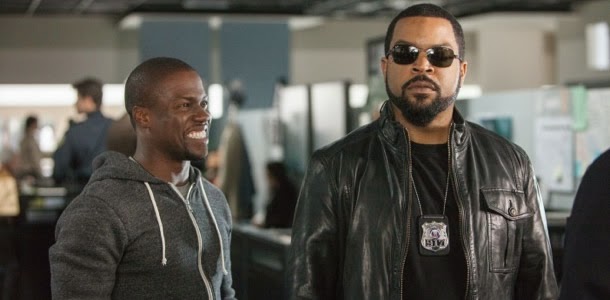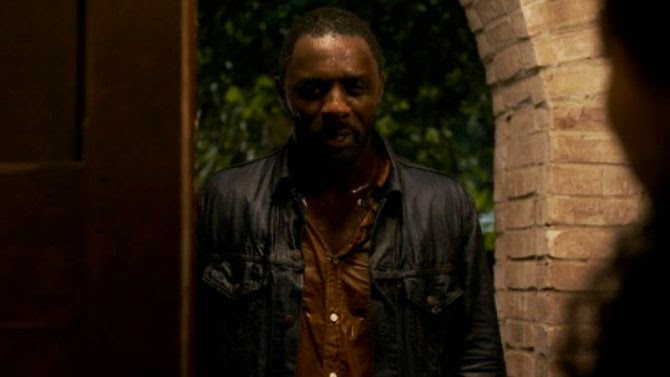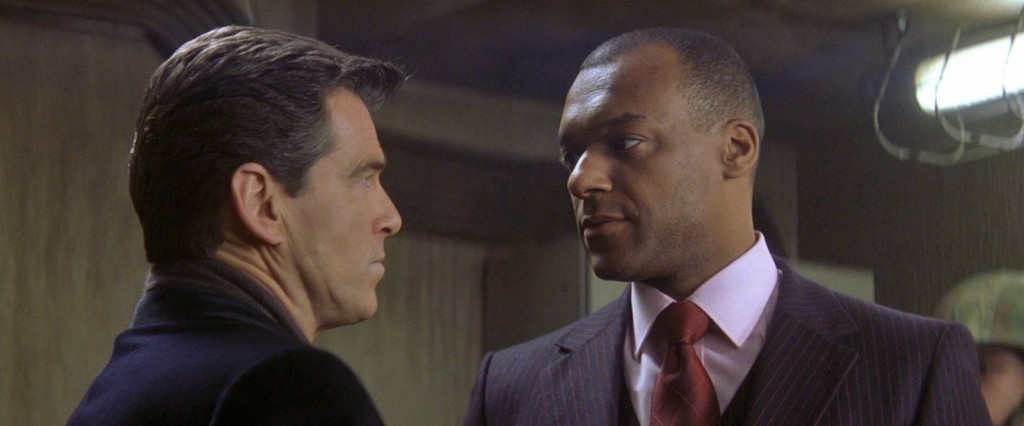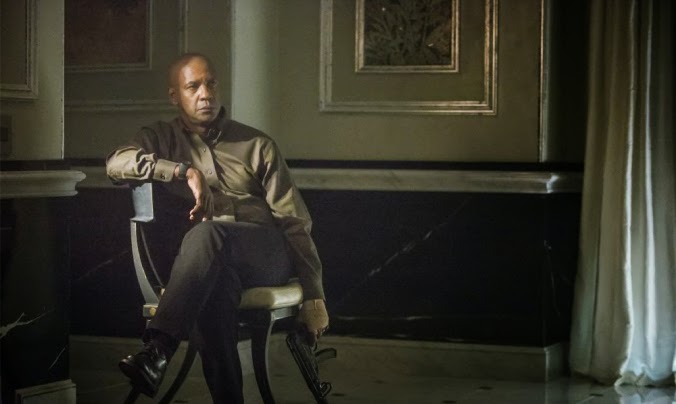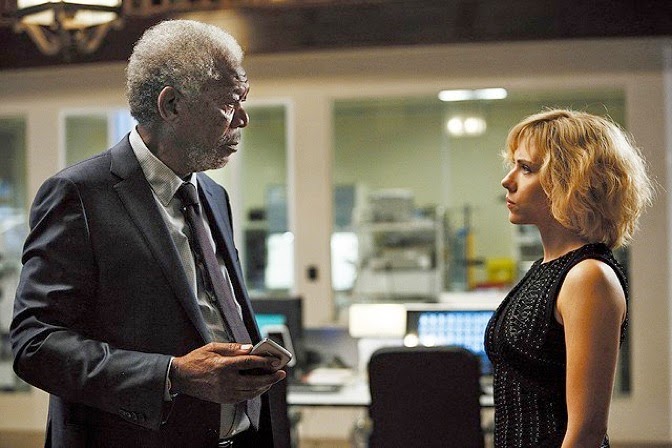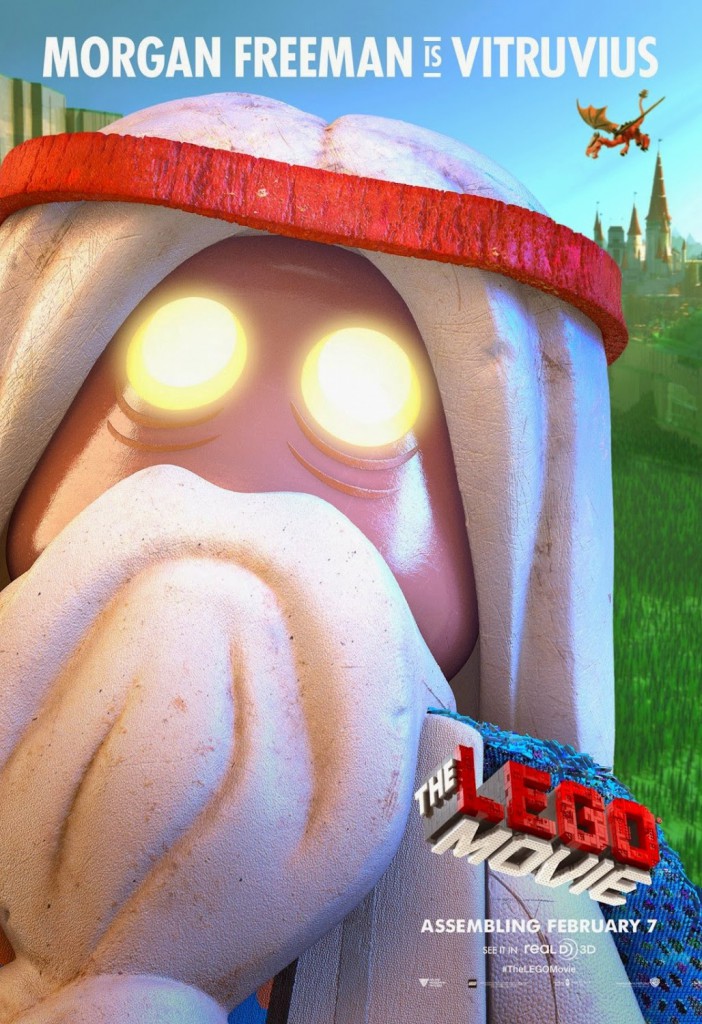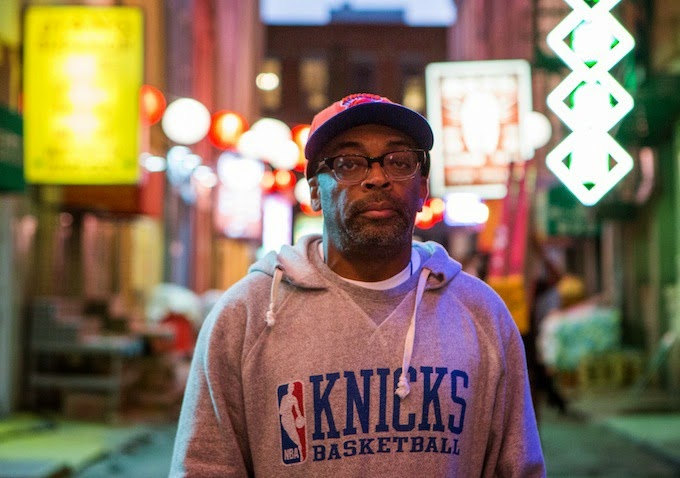First things first, with regard to the giant elephant in the room: Everybody doubtlessly has something to say about the whole twenty all-white actor nominees in this year’s Oscar race and the general lack of diversity among the key creative talent categories, and now that the Oscar ceremony is upon us, here’s where I finally chime in.
Let’s all agree up front that David Oyelowo was robbed by not scoring a nomination for his portrayal of Reverend Doctor Martin Luther King Junior in Selma. Viewing the trailer weeks before the film opened, and judging only by the choice clips highlighted in the montage, I was moved by his dignified embodiment of the slain Civil Rights leader and figured Oyelowo would be a shoo-in nominee for Best Actor. One scratches their head but still cannot fathom how it can be that a movie can indeed be good enough—and important enough—to be nominated for Best Picture, yet the film’s lead performer and its director Ava DuVernay both go unacknowledged by the Academy.
The director, by the way, is a female African American, a rarity of rarities among big studio filmmakers, and what better film than Selma to represent the first ever Best Director nomination for a woman of color? And even if this turns out to be Michael Keaton’s year for his career-best performance in Birdman, the mere nomination of the man in Selma who portrayed Dr. King would have been an appropriate gesture at least. Certainly more Oscar nominations for Selma would have rendered moot the ensuing racially heated hullabaloo.
Unless, of course, reports of a willful tweaking of historical facts in order to demonize LBJ are accurate, and the consensus is true that the film, admirable in its subject matter and solemnly respectful of King’s legacy though it may be, is merely technically proficient in a teleplay-of-the-week sort of way, and not an exquisitely mounted and groundbreaking cinematic milestone on the order of Malcolm X or 12 Years a Slave.
Shall we discuss a far more shocking snub?
Eight films are up for Best Picture this year, but I’m absolutely flabbergasted that David Fincher’s wickedly entertaining adaptation of Gone Girl didn’t earn whatever percentage of Oscar-voter love it needed to qualify as a nominee and find its way onto the Best Picture shortlist as number nine.
It’s a disgraceful snub by the Academy, especially in a year when they didn’t feel obliged to fill out all ten available Best Picture slots. I’m happy to see Rosamund Pike score a nomination for Best Actress, but the lack of nominations in the Director, Screenplay, Music, Cinematography, Sound Design and Editing categories are all equally egregious.
It’s also hard to figure how the director of Foxcatcher Bennett Miller was nominated, but the film itself was not. How can the Academy justify such an omission and still come short of listing ten worthy nominees for Best Picture?
With respect to the glaring Selma snubs and the Academy’s apparent color blindness, let’s be frank: 2014 was hardly a stellar year for actors of color to shine. 2014 is hardly a repeat of 2004, when both Jamie Foxx and Morgan Freeman took home Oscar gold.
No, there hasn’t been a whole helluva lot of important work this year by artists of color to truly take seriously for awards consideration.
Yes, it’s a bit snobbish that there are no men or women of color in the four main acting categories this year, and the controversy generates some sensational press, but I have a hard time pinpointing who, truly, got snubbed this year—other than anyone involved in the actual making of the film Selma, of course.
There’s very little, if anything, that can seriously compare to such bold Oscar-nominated work as Spike Lee’s screenplay for Do the Right Thing in 1989, or last year’s performance by Chiwetel Ejiofor in 12 Years A Slave, or to Denzel Washington’s two previous wins for Glory and Training Day. This sparse list of qualifying contenders in 2014 includes Denzel himself, who reteamed with his Training Day director for The Equalizer.
Let’s ponder the slim pickings that may or may not have been snubbed this year.
I haven’t yet seen the film Top Five, but more than one critic raved something about it being the black Annie Hall. Recognizing this as some truly Oscar-worthy praise, perhaps star/director Chris Rock is the new Woody Allen and he was snubbed in multiple categories, or perhaps his movie was simply a lukewarm near-miss.
Clearly the studio certainly didn’t ever position his romantic comedy as a serious Oscar candidate, not in the same way they were initially grooming Interstellar and then, when Christopher Nolan’s space opera didn’t turn out to be heady enough for major Academy Awards consideration, the eleventh-hour Christmas release and Oscar push for Selma.
Ride Along from early last winter showcases the odd-couple comedic chemistry between its mismatched stars, and it was a popular commercial success, and but does anybody seriously feel Ice Cube and Kevin Hart were snubbed in the same way David Oyelowo in Selma was snubbed?
Was the recent re-hued retelling of About Last Night with Kevin Hart in the James Belushi role finally any truer to David Mamet’s original stage play than Edward Zwick’s 1986 Rob Lowe/Demi Moore adaptation?
Wasn’t there a new Madea movie this year? I can’t be sure since I’ve lost track of them, but props to Tyler Perry, who finally scored a juicy supporting role in Gone Girl as a hotshot lawyer—it may not have been Oscar caliber enough to warrant a legitimate snub, but at least he didn’t require the ridiculous Madea getup to be winning.
People seem to like Idris Elba on television and I agree he’d make a brave choice for a future incarnation of James Bond—he’s handsome and affable in supporting authority figure roles (Pacific Rim, Prometheus, the Thor movies). However, his recent stalker thriller No Good Deed misfired and suggested he’s not quite a leading man on the order of Will Smith or Denzel Washington. Not yet, anyway, and he certainly doesn’t have the wide appeal to command and “open” a movie to the same box office fireworks Mister Smith and Mister Washington are both expected to deliver.
Finally, he lacks their Academy clout, and that’s not withstanding Smith’s 2013 dud After Earth. (Cough, M. Knight curse, cough, cough.) Will Smith, by the way, is evidently still recuperating from the embarrassing debacle of After Earth two summers ago, and other than a bit part in the romantic fantasy Winter’s Tale, he humbly sat out 2014. As for Elba, his acting chops as a matinee idol are hopefully still a work in progress but, yes, I did just now go on record as a life-long 007 fanatic who’d be cool with seeing a gentleman of color step into James Bond’s tuxedo.
Actually, fun fact: The producers of the James Bond series have already introduced a black double-oh-worthy agent in a few of the Pierce Brosnan films. Look for a guy named Charles Robinson, played by an underutilized actor named Colin Salmon—he’s usually in the “M” briefing scenes, and his comfortable rapport with Brosnan is fleeting but memorable.
He’d make a terrific black James Bond before Idris Elba ever would, but I digress: Elba didn’t deliver Oscar bait this year in No Good Deed on order of his work the previous year as Nelson Mandela, a performance which technically wasn’t nominated for an Oscar anyway but was at least recognized with a Golden Globe nomination by the Hollywood Foreign Press Association.
Obviously, none of the 2014 movies mentioned above are of the same caliber as such vital and resonant works as Do the Right Thing or The Color Purple or 12 Years a Slave. Nobody in Hollywood ever really took movies like Ride Along and No Good Deed seriously as Oscar material, so if we’re going to expose the true shocking hypocrisy by revealing the unsung treasure who somehow went unnoticed, we’re going to have to aim higher and focus on the newest work from some previous Academy Award winners.
We’ve already mentioned Denzel Washington in The Equalizer.
Firstly, yes, this is the theatrical adaptation and modern update of that ’80s television series with Edward Woodward as a mysterious ex-special-forces-slash-avenging-angel sort of fellow, and in every episode he’d help out a needy stranger by dispensing with their despicable problems. Secondly, yes, the film works smashingly well, coasting along on Washington’s wizened charisma and slow-burn rage, and director Antoine Fuqua makes all the B-movie proceedings feel like the sleekest and brawniest A-movie entertainment since John McClane crashed the Nakatomi Tower Christmas party. Sequel, please.
That said, let’s not kid ourselves: The Equalizer is not important Oscar-caliber fine cuisine, and has no aspirations to be—it is merely delicious cinematic junk food. With regard to For-Your-Oscar-Consideration performances by past Oscar winners, and among all the ostensible snubs that would have otherwise allowed for a more racially diverse pool of nominees, The Equalizer is about where the high bar for 2014 was set.
Jamie Foxx scored a big Best Actor Oscar win for Ray in 2004, but did he deliver a performance as worthy of consideration in the overwrought Amazing Spider-Man sequel or the new inexplicable urbanization of the musical Annie? I think not, and every other critical moviegoer in the history of forever agrees.
Morgan Freeman was a hoot as the voice of Vitruvius in The Lego Movie—the equal-sized elephant in the same room when it comes to shocking Oscar omissions!—and he popped up in a string of sturdy but undemanding supporting roles in such movies as A Dolphin’s Tale 2, Transcendence and Lucy (which I thought kicked absolute ass, by the way).
None of these films, nor his performances in them, aspire to the same gravitas as his previously nominated work in The Shawshank Redemption, or his Supporting Actor win a decade ago for Million Dollar Baby. This is not to criticize Freeman for taking a paycheck role in a big-budget studio blockbuster wannabe every now and then. It’s totally understandable, an actor’s got to eat, and in an age when completed films often sit on the shelf for months at a time awaiting release, it’s not Freeman’s fault so many middling examples of his fine work were scheduled for this same calendar year.
For the record, I thought The Lego Movie was delirious fun, and its omission from the Best Animated Film category is by far the most scandalous and indisputable controversy of the season.
As for Oscar-worthy actresses of color who were ostensibly overlooked this year, what does Halle Berry have to show for 2014, beyond another thankless turn as Storm in the latest X-Men flick? Oprah Winfrey produced and played a supporting role in Selma, but you wouldn’t know she had anything to do with the film to look at the advertisements, as she’s barely glimpsed or mentioned.
Whoopi Goldberg is still mostly a fixture on television’s The View, though she apparently popped up in last summer’s Teenage Mutant Ninja Turtles. Angela Bassett and Octavia Spencer have also defected to television recently and both currently star in hit shows, so I doubt we’ll be seeing much from either of them in cinemas for a while.
Upon reflection, perhaps the argument shouldn’t be about why there are so few faces of color in this year’s pool of acting nominees; perhaps the argument ought to be about why there are so many dispensable cotton candy pictures and inexplicable remakes and so few important and brave stories that might offer meatier—and more meaningful—roles for tomorrow’s Denzels and Morgans and Chiwetels and Octavias and Halles.
The dearth of vital roles for actors and actresses of color is mirrored in the sudden lack of serious films from Oscar-caliber filmmakers like, say, Spike Lee, who most recently gave us a gritty but pointless remake of the Korean cult hit Oldboy and followed it with a crowd-funded low-budget vampire flick—neither bears scrutiny alongside such towering and confident masterworks as his earlier films Malcolm X and Clockers or his more recent pair of stirring and haunting Katrina documentaries.
Farther down the bench, the last I heard, John Singleton of Boyz ’N The Hood fame had remade Shaft and delivered a Fast and Furious sequel, but without an IMDb.com search, I couldn’t tell you for certain what he’s done since that deserves mention in the same breath as Boyz.
The Hughes Brothers have been surprisingly quiet since The Book of Eli in 2010, and we’ll allow the director of 12 Years a Slave, Steve McQueen, some time to finish his follow-up. The bottom line is, the pickings were slim all around for filmmakers and actors and actresses of color in 2014, and perhaps the recent controversy over Oscar’s ill-timed color blindness was a tad overblown.
If the studios and independent producers out there ever dare to up their game by enriching the candidate pool with better and more diverse roles in more interesting and challenging films, perhaps we won’t always be forced to devise lame excuses for why the nominations roster is so frequently lopsided.
In the meantime, I will be glued to my television screen for the Oscar ceremony on Sunday the 22nd of February, eagerly awaiting each celebrity fashion statement and cringing at every fumbled acceptance speech, gleefully observing each ill-timed scoff by a sore loser unaware the camera is still zoomed in on their face, and cherishing all the embarrassing mispronunciations and horribly mangled names spoken by inebriated celebrities who can’t focus on the teleprompter.
Plus, they’ve booked Doogie Howser to be the emcee.
Happy Oscar Night!



































































































